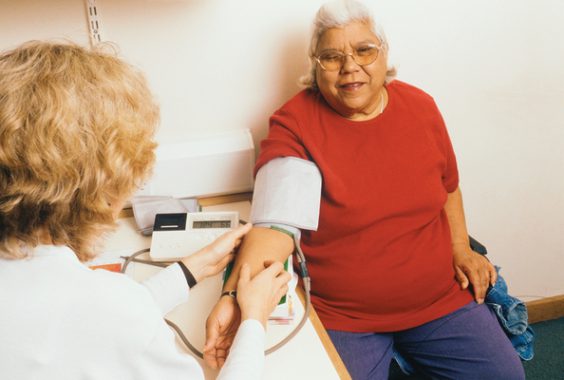The problem
Data from QOF had shown us that Redbridge had a higher than national average proportion of people at risk of stroke as a result of atrial fibrillation (AF), while Sentinel Stroke National Audit Programme data showed a significant number of established AF patients who went on to have a stroke were not anticoagulated or were on inappropriate antiplatelet therapy.
What we did
I led on a project, funded by NHS Redbridge CCG, in which I worked with colleagues in every GP surgery across the borough to better identify patients with AF and make sure they were on the right anticoagulant therapy.
I worked closely with clinical pharmacist Jagjot Chahal from Barts Health NHS Trust to put together a multi-disciplinary team, including a consultant cardiologist, consultant haematologist, a specialist haematology pharmacist and a GP coordinator to garner expertise from across primary care, secondary care and pharmacy. These team members were drawn from NHS Redbridge CCG, Barts Health; Barking, Havering and Redbridge NHS Trust; and UCL Partners.
We then worked with the GP coordinator to identify GP AF leads in every practice in the borough. A clinical pharmacist visited every practice and reviewed patients jointly with the GP AF lead to identify those either on aspirin monotherapy, not anticoagulated at all or not coded.
The mix of expertise also meant GPs could present complex patients to the multi-disciplinary team via video conference and get expert advice in managing the condition for specific patients. The team also worked to avoid delays as a result of referrals into hospital by supporting anticoagulation initiation by GPs and treating patients closer to home.

From left: Pharmacist Jagjol Chahal with GP Dr Shabana Ali
Results
As a result, Redbridge has seen the biggest increase in London – and the second biggest increase nationally – in the proportion of high-risk AF patients being treated with anticoagulant medication. QOF data showed the proportion of high-risk patients on anticoagulant therapy in Redbridge CCG increased from 77% in 2016/17 to 83% in 2017/18.
In the long term, this should see a reduction in the number of strokes in Redbridge.
The mix of expertise we used was commended by NICE and the work was recognised with awards including for ‘Centre best able to demonstrate adherence to NICE Quality Standards for Atrial Fibrillation’ at the Anticoagulation Achievement Awards hosted in Parliament.
The future
The approach to identifying and treating AF is being rolled out in other CCG areas, starting in Barking and Dagenham and Havering in East London, and we plan to replicate this in managing other long-term conditions, such as asthma and diabetes.
Dr Shabana Ali is a GP at Southdene Surgery in South Woodford, East London








